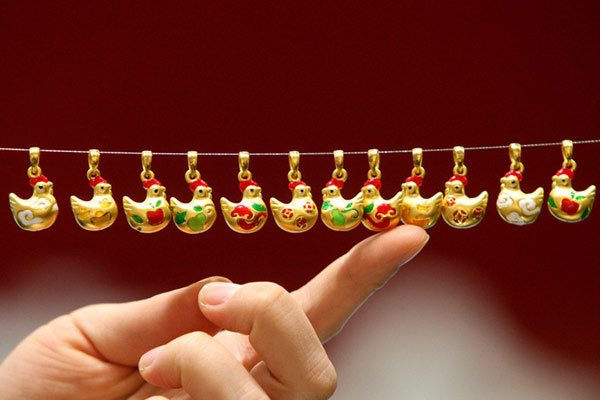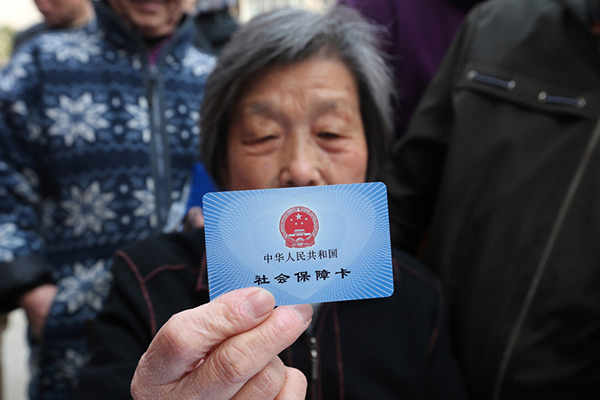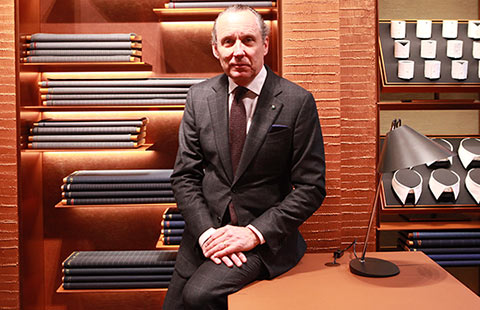Aftersales services backbone of BMW growth strategy in China
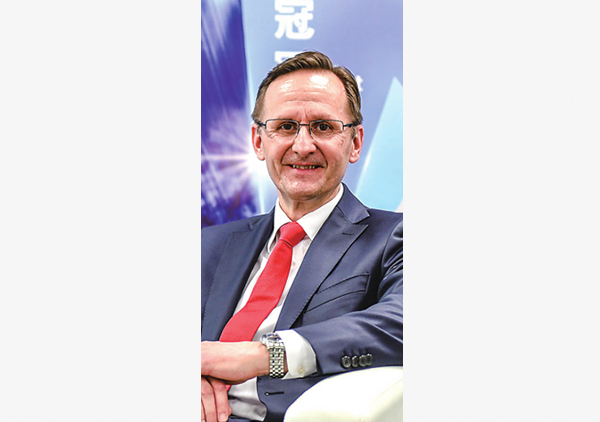 |
|
Claus Eberhart, vice-president of aftersales at BMW Brilliance Automotive. [Photo provided to China Daily] |
One example of its efforts is the biennial BMW National Aftersales Competition of Excellence, which involves more and more participants each year.
The automaker said the event this year, which concluded on Thursday in Guangzhou, had for the first time attracted contestants from all of its more than 500 dealerships across the country.
Nearly 20,000 people enrolled in the event when it started in June and 145 survived several rounds of exams to compete as finalists.
Their competition was broadcast live with commentators, like those seen in sports broadcasts, telling the audience if what the contestants did was good or bad and what to look out for in certain procedures.
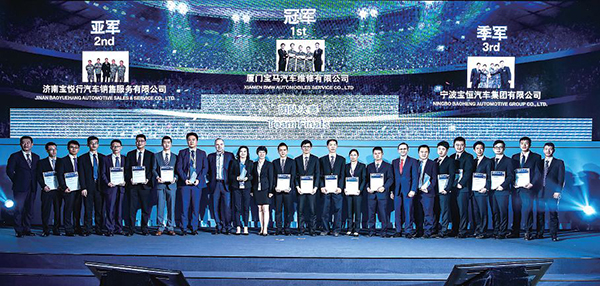 |
|
Award winners pose at the team finals of the 2016 BMW National Aftersales Competition of Excellence. [Photo provided to China Daily] |
BMW was one of the first automakers to establish a training academy in China. It now has four training centers-in Beijing, Shanghai, Guangzhou and Xi'an-and 15 training bases in the country, where 267 trainers offer 691 practice-based aftersales service courses.
Claus Eberhart, vice-president of aftersales at BMW Brilliance Automotive, said the courses used to emphasize skills, but now increasingly reflect the real daily work of aftersales staff.
One of the customer-oriented innovations this year is car maintenance by two technicians.
The six-step and 51-item course, which is expected to roll out soon across the country, features two people doing different jobs and cross-checking each other's work, thus cutting the time needed by half and preventing possible errors or omissions.
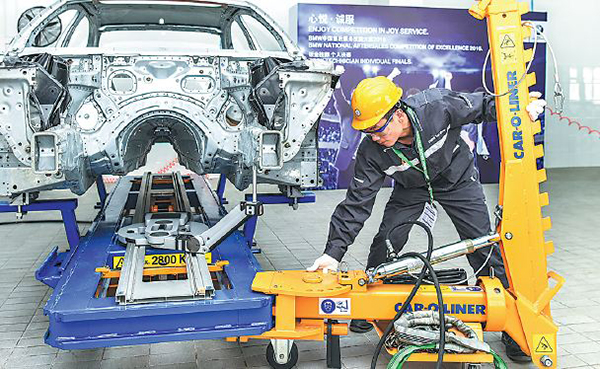 |
|
A BMW technician takes part in the body technician section of the 2016 BMW National Aftersales Competition of Excellence. [Photo provided to China Daily] |
He said it is the people who make the difference, calling on the technicians, service advisers and parts advisers who work hard every day at the dealerships to ensure customer satisfaction.
The automaker is joining hands with 15 vocational schools in the country to provide a stable supply of high-caliber young people to staff the dealerships.
Throughout the past 10 years, the program has trained 6,000 people and around 30 percent of newly recruited aftersales staff were from the BMW Education of Service Technology program.
BMW's emphasis on aftersales service is paying off. The 2016 International Aftersales Customer Survey showed that customers are most satisfied with BMW among German premium brands.
Though already in a good position in customer satisfaction, Eberhart said BMW will never rest on its laurels.
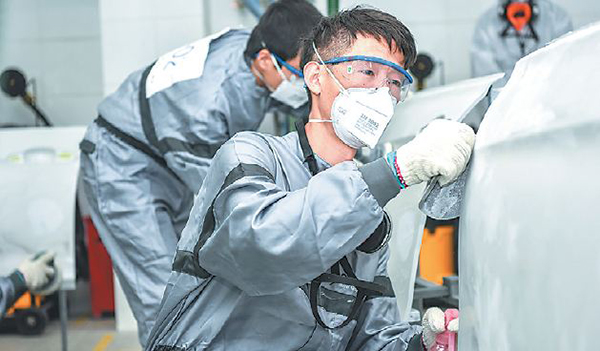 |
|
Technicians take part in the painting section of the 2016 BMW National Aftersales Competition of Excellence. [Photo provided to China Daily] |
Digitalization and connectivity are helping to deliver what customers expect in the Chinese market, where premium car owners are getting younger and younger.
Eberhart said the average age of BMW customers in China is less than 35 years old, and the proportion of the post-90s generation is growing larger and larger, so the automaker will offer smartphone apps and set up WeChat accounts in early 2017 to facilitate aftersales services.
"China is the first country in which we will launch such apps. In terms of digitalization and connectivity, it is far ahead of other countries," said Eberhart.
China is BMW's largest single market, where 472,700 BMW and MINI cars were sold in the first 11 months of 2016.
That has brought its total customers to nearly 2.7 million in the country, who have paid 5 million visits to dealerships in the country this year.
"That means we have 5 million touch points with our customers, and 5 million times we can deliver excellent services to our customers," said Eberhart.
"With the positive experience 5 million times a year, we are not only creating high customer satisfaction with aftersales services so that they come to us instead of independent repairers, but also doubling the chance that the next car they buy will be a BMW."
Besides traditional 4S stores, the automaker is setting up rapid maintenance stores to win customers from individual repairers and online maintenance providers.
It now has about 22 such stores in the downtown areas of 16 cities across China to make it faster and more convenient for customers to have their cars maintained and repaired.









